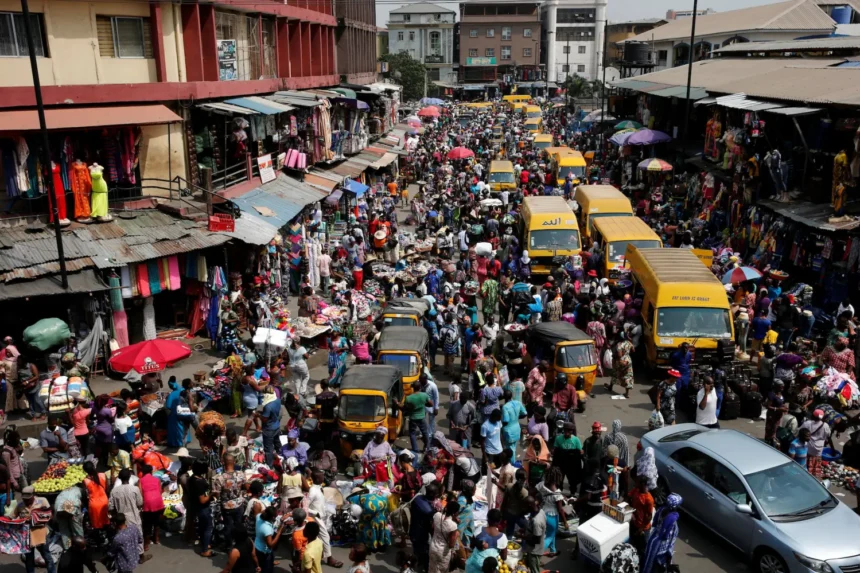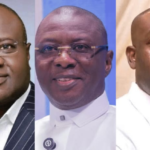Why Decades of Economic Reforms Failed to Lift Sub-Saharan Africa From Poverty
Despite decades of economic reform, Sub-Saharan Africa remains trapped in poverty, with few lasting gains to show for nearly half a century.
From Structural Adjustment Programmes (SAPs) in the 1980s to today’s budget cuts and free market reforms, the region has tried many times to turn things around, but progress remains slow.
“From Structural Adjustment Programmes (SAPs) in the 1980s to today’s budget cuts and free market reforms, the region has tried many times to turn things around, but progress remains slow.”
While other parts of the world have moved forward quickly, Sub-Saharan Africa is still trying to catch up, often just fighting to stay in place. As shown by decades of data, poverty in SSA has remained stubbornly high, even during years of strong GDP growth – a clear signal that reforms haven’t translated into inclusive development.
Endless reforms, elusive results
Across Africa, countries have followed the same steps, cutting spending, opening up their economies, and adopting policies shaped by international lenders. Yet from Nigeria to Malawi and Ghana to Zambia, the outcomes have fallen short, leading to little progress and rising frustration.
oday, Sub-Saharan Africa remains the poorest region in the world. Growth is still unpredictable, debt is climbing again, and inequality is widening. For many, the promise of reform has not translated into better lives, leaving citizens disillusioned and policymakers searching for answers.
The rise of SAPs: A turning point that never turned
Structural Adjustment Programs gained momentum in the 1980s, during a period of economic crisis triggered by global oil shocks and falling commodity prices. Many SSA economies, heavily dependent on exports, saw revenues collapse and growth grind to a halt.
To stabilise these economies, the World Bank introduced Structural Adjustment Loans (SALs) in 1980, while the IMF had earlier launched the Extended Fund Facility (EFF) in 1974.
The Structural Adjustment Facility (SAF) followed in 1986, later enhanced by the Enhanced Structural Adjustment Facility (ESAF) in 1987. By the end of the decade, almost every country in SSA was running some version of these adjustment programmes.
The goals were clear: stabilise the economy, improve efficiency, and reduce dependence on unsustainable borrowing. The results, however, were mixed and, in many cases, disappointing.
But to understand why the reforms struggled, one must look at what truly triggered the crisis in the first place.
Diagnosing the crisis: mismanagement or misfortune?
The origins of SSA’s crisis lie in a blend of internal mismanagement and external shocks. Between 1970 and 1974, the region’s growth averaged a robust 6.4 percent per year.
But after the oil shocks and global recession, growth fell to 2.5 percent between 1975 and 1979 and plunged further to just 1.3 percent from 1980 to 1984.
Private capital dried up. Export revenues declined. Current account deficits widened. External debt ballooned from 27.4 percent of GDP in 1980 to over 90 per cent by the end of the decade. Of the 40 countries globally classified as heavily indebted, 33 were in SSA.
The World Bank and IMF placed the blame primarily on bloated public sectors, inefficient parastatals, and excessive government spending.

But critics argued that this diagnosis underplayed the role of external shocks, unfair trade rules, and limited global support. The region, many argued, was being treated for symptoms rather than the underlying disease.
Public sector reform: cutbacks without safety nets
SAPs pushed governments to slash spending, privatise public enterprises, and liberalise prices and exchange rates.
In theory, this would correct fiscal imbalances and promote market-driven growth. In practice, the cuts often fell hardest on education, health, and social services—undermining human capital development and deepening inequality.
State-owned enterprises, which were often inefficient, were either restructured or sold off. But without strong institutions or competitive markets, privatisation sometimes led to monopolies and corruption rather than efficiency.
As Anne Krueger of the IMF put it at the time:
“Governments have kept the prices of public sector services constant in an effort to control inflation. This leads to budget deficits and financial losses, which in turn intensify inflation, further distorting the economy.”
In Malawi, the reduction of fertiliser subsidies under economic reforms has repeatedly left smallholder farmers vulnerable, threatening national food security and eroding the gains from agricultural productivity.
Similarly, in Zambia, SAP-era reforms dismantled agricultural support programmes, leaving many rural communities worse off. And in Ghana, cuts to public spending affected school funding and teacher salaries, leading to overcrowded classrooms and a decline in educational quality.
The long road to structural reform
By the early 1990s, over 30 African countries were under IMF-guided structural adjustment. The Baker Plan of 1985, which emphasised “adjustment with growth”, encouraged deeper collaboration between the IMF and World Bank.
Countries needed to secure IMF approval before accessing World Bank support, making reforms a prerequisite for aid.
These programmes targeted four key areas: rationalising public investment, reforming public institutions, reducing the fiscal burden of state enterprises, and increasing the efficiency of government spending.
Yet the reforms rarely translated into sustainable growth or poverty reduction. SSA’s economies remained heavily dependent on commodity exports, vulnerable to global shocks, and constrained by weak infrastructure and limited human capital.
Why has so little changed?
Today, SSA’s economic growth remains fragile. According to the IMF, the region is expected to grow by 3.6 percent in 2024 and 4.2 percent in 2025.
But this is far below the pace needed to achieve the Sustainable Development Goals or lift millions out of poverty. High debt, weak institutions, and persistent inequality continue to hold the region back.
Even where governments take bold steps, the burden on the poor remains heavy. In 2023, Nigeria’s President Bola Tinubu removed fuel subsidies, calling it a necessary step to save the economy. But the policy came at a steep cost for ordinary citizens.
“I admit that the decision will impose an extra burden on the masses of our people. I feel your pain, says Tinubu.
Public discontent grew across cities as transportation and food prices surged. Earlier, Tinubu had made the government’s stance clear:
“No matter how long you protest, we are going to remove the fuel subsidy.”
The story echoed in Kenya in 2024, where violent protests erupted over IMF-backed tax hikes. Despite eventually withdrawing the finance bill, the damage was already done.
“Protesters blame the IMF for fiscal policies they believe led to the chaos, with violent demonstrations erupting even after President William Ruto withdrew a finance bill that aimed to raise over $2 billion in taxes.”
Reform fatigue, without reform payoff
Sub-Saharan Africa’s experience with reform reads like a cautionary tale: technocratic fixes alone cannot drive inclusive growth.
Economic transformation requires more than budget cuts and policy tweaks; it needs strong institutions, regional integration, and investment in people.
Half a century on, the verdict is clear: SSA has made repeated efforts to get the economics right. Now, it must get the politics, governance, and human development right too before another generation is lost to reforms that promise much but deliver little.




